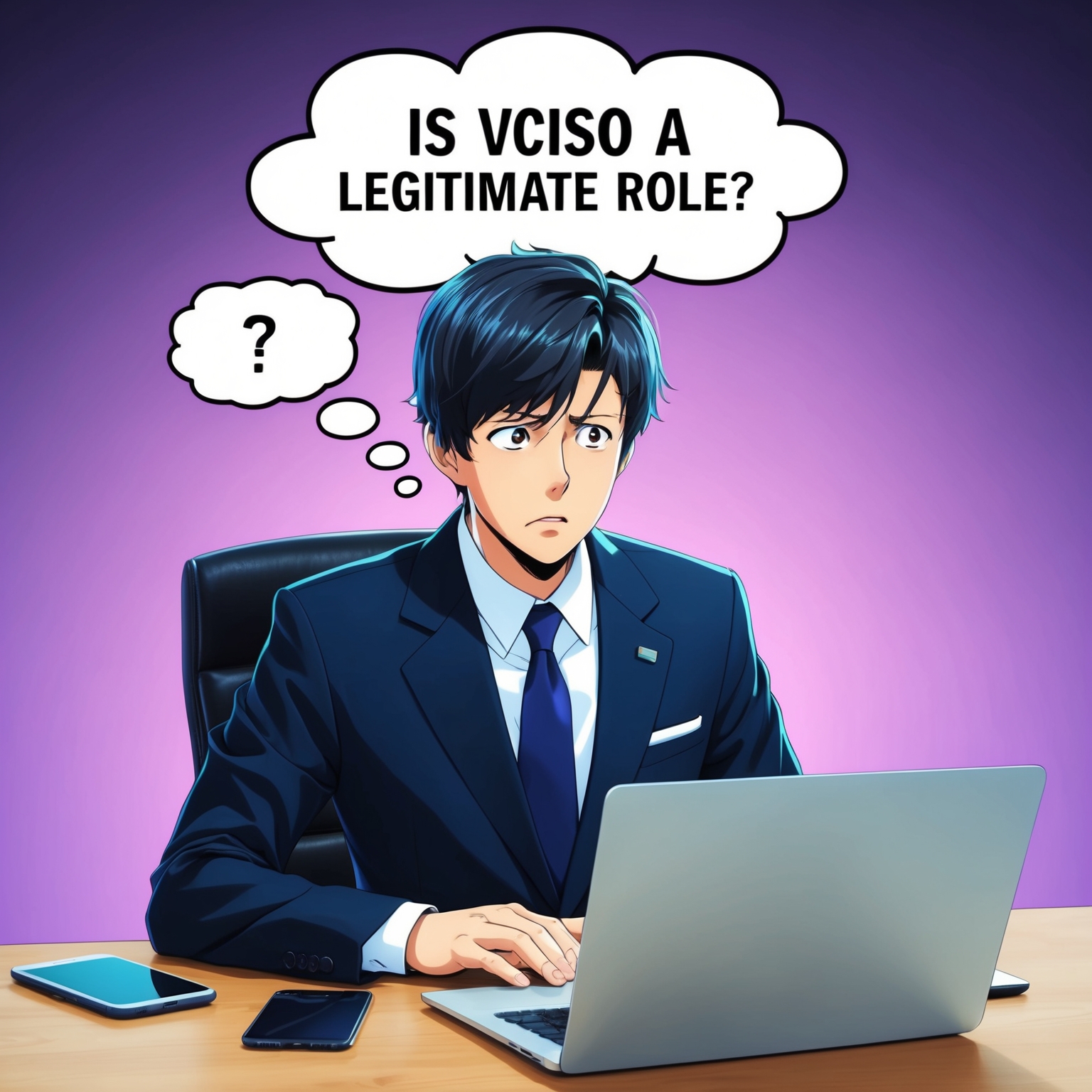What Does a vCISO Do? Is It Worth It, and How Do You Spot a Good One?
In today’s digital-first world, cybersecurity isn’t just a technical issue—it’s a business imperative. This makes the role of a Chief Information Security Officer (CISO) crucial. However, not every organization has the resources or need for a full-time CISO. Enter the Virtual Chief Information Security Officer (vCISO), an on-demand, scalable solution to handle your cybersecurity strategy. But what exactly does a vCISO do, and how do you ensure you’re hiring the right one? Let’s dive in.
What Is a vCISO?
A vCISO is an experienced cybersecurity professional who provides strategic guidance and leadership for your organization’s security program. Unlike a full-time CISO, a vCISO works on a contract or retainer basis, offering services tailored to your organization’s needs.
vCISOs are particularly valuable for:
Small to Mid-Sized Businesses (SMBs): These organizations often lack the budget for a full-time CISO but still face significant cybersecurity threats.
Growing Companies: As businesses scale, they require strategic security planning to handle increased complexity.
Organizations in Transition: Companies undergoing mergers, acquisitions, or compliance changes often benefit from the expertise of a vCISO.
What Does a vCISO Do?
A vCISO typically handles the following responsibilities:
1. Develop a Cybersecurity Strategy
Align security goals with business objectives.
Identify key risks and prioritize mitigations.
Create a roadmap for building and maintaining a strong security posture.
2. Risk Assessment and Management
Conduct in-depth assessments to identify vulnerabilities.
Implement risk management frameworks like NIST, ISO 27001, or CIS.
Continuously monitor and adapt to emerging threats.
3. Compliance and Regulatory Support
Ensure adherence to industry standards like GDPR, HIPAA, PCI-DSS, or CCPA.
Manage audit preparation and reporting.
4. Incident Response Planning
Develop and test incident response plans (IRPs).
Act as a key advisor during a cybersecurity incident.
Provide post-incident analysis and improvements.
5. Vendor and Technology Assessment
Evaluate third-party vendors for security risks.
Recommend tools and technologies that align with your needs and budget.
6. Board and Executive Reporting
Translate technical risks into business terms for stakeholders.
Provide actionable insights to the C-suite and board of directors.
Is a vCISO Worth It?
Hiring a vCISO is a cost-effective way to access top-tier cybersecurity expertise. Here’s why it can be worth the investment:
1. Cost Savings
The average salary of a full-time CISO can exceed $250,000 annually, excluding bonuses and benefits. A vCISO provides the same expertise at a fraction of the cost.
2. Expertise On-Demand
vCISOs often have years of experience across industries, bringing a depth of knowledge that even some full-time CISOs may lack.
3. Flexibility
You can scale vCISO services up or down based on your needs, whether it’s for a one-time project or ongoing support.
4. Improved Focus
By outsourcing cybersecurity leadership, you allow your internal team to focus on core business priorities without compromising security.
5. Reduced Risk
A vCISO’s proactive approach to risk management helps reduce the likelihood of costly breaches and compliance penalties.
How to Spot a Good vCISO vs. a Bad One
Not all vCISOs are created equal. Here’s how to differentiate between a great hire and a potential liability.
Key Traits of a Good vCISO
Experience Across Industries: Look for someone with a proven track record in your industry and others. This diversity indicates adaptability and broad expertise.
Strategic Thinking: A good vCISO doesn’t just focus on day-to-day operations; they align security initiatives with your long-term business goals.
Strong Communication Skills: They should excel at translating complex technical concepts into actionable business insights for executives and boards.
Up-to-Date Knowledge: Cybersecurity evolves rapidly. Ensure they stay informed about emerging threats, regulations, and technologies.
Certifications: Look for certifications like CISSP, CISM, or CISA, which indicate expertise and commitment to professional standards.
References and Case Studies: A good vCISO will provide references and examples of how they’ve successfully helped similar organizations.
Red Flags of a Bad vCISO
Cookie-Cutter Solutions: If they offer a one-size-fits-all approach without understanding your unique needs, that’s a warning sign.
Lack of Transparency: Be wary if they can’t explain their methods, pricing, or past successes.
Over-Promising: Promising complete security or instant results is unrealistic and often a red flag.
Minimal Experience: Avoid vCISOs without a proven track record in cybersecurity leadership roles.
Poor Communication: If they struggle to articulate risks or strategies, they may hinder executive decision-making.
How to Hire the Right vCISO
To ensure you’re hiring the right vCISO, follow these steps:
Define Your Needs: Identify your goals, whether it’s compliance, risk reduction, or incident response.
Conduct Interviews: Assess their industry knowledge, strategic thinking, and communication skills.
Check Credentials: Verify certifications and past roles.
Request a Proposal: Ask for a tailored strategy that aligns with your business objectives.
Start with a Pilot: Consider starting with a smaller engagement to evaluate their effectiveness before committing long-term.
Final Thoughts
A vCISO can be a game-changer for organizations seeking robust cybersecurity without the overhead of a full-time executive. By understanding what a vCISO does, recognizing their value, and knowing how to spot the right one, you can protect your business while staying focused on growth.
If you’re considering a vCISO, take the time to assess your needs and choose someone who aligns with your business’s goals and values. In the ever-evolving cybersecurity landscape, having the right expertise at the helm can make all the difference.
Take the first step towards securing your organization’s future by letting us assess your needs. Complete the Virtual CISO Discovery Form today and see how a tailored cybersecurity strategy can propel your business forward.







